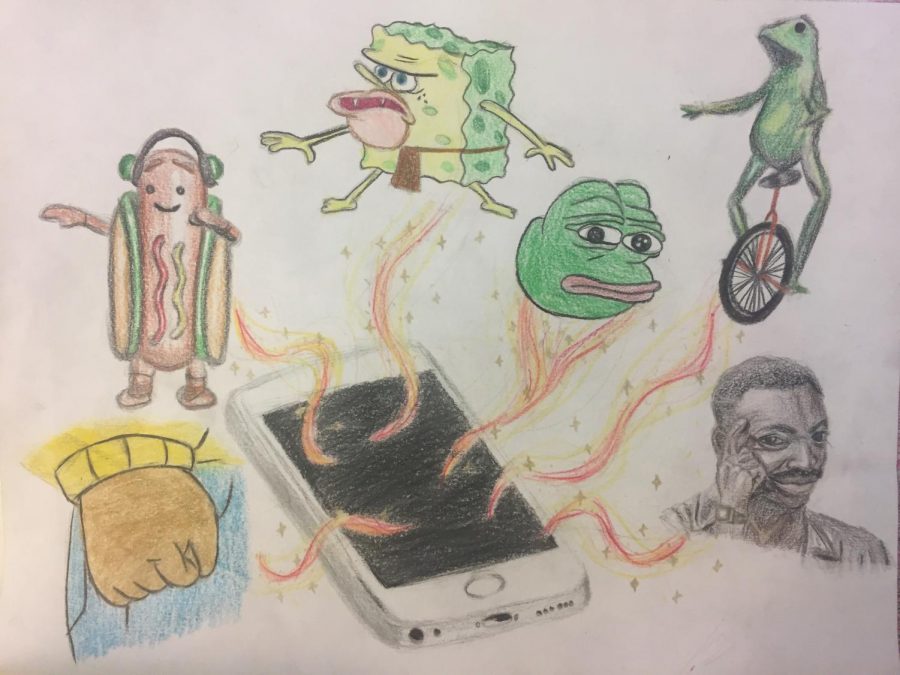Memes Not Hot
December 22, 2017
The concept of a “meme” was first conceived by sociologist Richard Dawkins to describe a cultural phenomena that diffuses rapidly throughout a population [1]. Over time, the meme has become associated with something spreading across Internet. Attempts at defining the meme have been difficult, as much of it is up to interpretation. Kaivu Hariharan ‘20 eloquently defines it as “an idea spreading between people that often changes.” Others have simply stared in confusion when asked for a definition.
Previously, memes almost always took the form of a picture with white block letters captioning that image into something humorous. In our current modern day, a meme is anything remotely humorous that spreads across the Internet, whether it be a song, picture, or catchphrase. Memes often poke fun at social norms or life in general. Other times, they target specific communities, such as a gaming subreddit or a sports Facebook page.
One of the defining features of memes have been the large number of parodies that come with them. Pen-Pineapple Apple-Pen saw hundreds of variations, including one feature Pikachu, while the Salt Bae meme has inspired a Twitter user to repeat the scenario with bread.
One of the more iconic memes this fall has been the “Man’s Not Hot” meme, a rap which features seemingly nonsensical phrases including “da ting goes skraa” and “two plus two is four, minus one that’s three, quick maths.” Following this, hundreds of fan-created internet memes have taken some of these phrases and inserted them into everyday life. One features a nursery rhyme sounding song, with “the duck goes quack, quack, quack, quack, and da ting goes skraaa!” These parodies have skyrocketed the “Man’s Not Hot” song into quite a popular meme.
More than anyone else, memes have affected teens the most. Facebook, Instagram, Reddit, and numerous other sites flood with memes. Many students claim that they primarily use some sites to browse and add to the collection of memes. Even teachers seem to believe that learning is made easier with memes, and have made a habit of posting subject related memes onto their walls. Most memes created in good taste are harmless, lightening up the mood and allowing teens to laugh over something. In general, they help people find common ground and have positive impacts.
There are also those who believe that memes serve only as detractors. John Hackett ‘19 warns that memes “take the creativity out of comedy.” Instead of crafting new jokes, many simply apply memes they’ve seen to the current situation and call it humor. Additionally, Harvard once rescinded admissions after it discovered ten students posting extremely offensive memes in a Facebook group. This was a rather serious incident that brought new light onto memes, but didn’t change the overall attitude towards the topic.
Overall, memes are harmless internet trends when created and shared with common sense. They say memes are burning up the internet, but I tell them “memes’ not hot.”
[1] https://en.wikipedia.org/wiki/Meme

